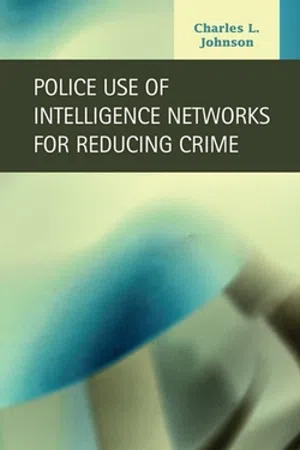
- English
- PDF
- Available on iOS & Android
Police Use of Intelligence Networks for Reducing Crime
About this book
Johnson examines the role of communications and intelligence in policing. Based on an evaluation of a unit within the Office of the Washington Attorney General, Johnson demonstrates that information flow in the criminal justice system is often hindered by self-interest and a lack of trust between members of the criminal justice community. Johnson studied people at various responsibility levels, including community corrections officers, crime investigators, supervisors, and police chiefs and Sheriffs. The existence of trust-based relationships is not the only key to effective intelligence-led policing. Crime fighters must also learn to avoid "silo-thinking" and get beyond the notion that their individual effort is the most important element of solving crimes. Lastly, agencies have to adopt intelligence gathering capabilities that are compatible with one-another.
Frequently asked questions
- Essential is ideal for learners and professionals who enjoy exploring a wide range of subjects. Access the Essential Library with 800,000+ trusted titles and best-sellers across business, personal growth, and the humanities. Includes unlimited reading time and Standard Read Aloud voice.
- Complete: Perfect for advanced learners and researchers needing full, unrestricted access. Unlock 1.4M+ books across hundreds of subjects, including academic and specialized titles. The Complete Plan also includes advanced features like Premium Read Aloud and Research Assistant.
Please note we cannot support devices running on iOS 13 and Android 7 or earlier. Learn more about using the app.